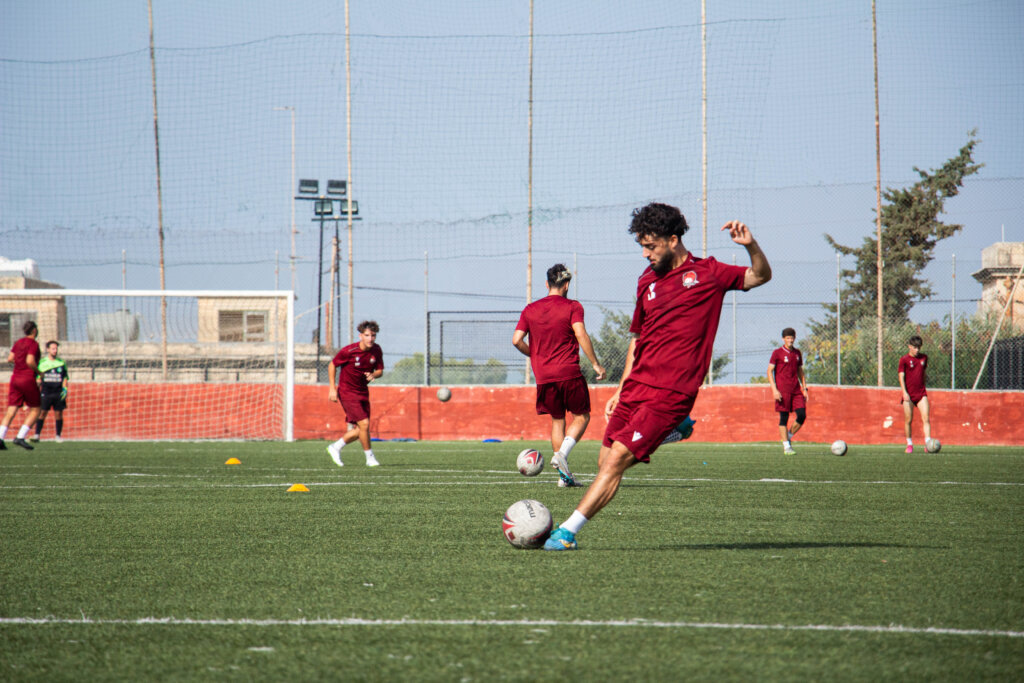The importance of training centres is critical in the current football landscape.
Training centres are often associated with professional clubs, serving as a talent pool for the first team.
They allow clubs to maintain continuity in their playing philosophy and style, while investing in the future of the club and the sport as a whole.
They are specialised institutions dedicated to the discovery, education and development of young talents in the world of football.
These centres provide a professional structure and training programmes designed to prepare young athletes for a career in high-level football.
They play a vital role in developing the players’ technical, tactical, physical and psychological skills.
They also contribute to the teaching of values such as teamwork, discipline and respect, which are fundamental in sport.
In this article we will see in detail the functioning and objectives of a football training centre.
Summary
ToggleI. The story of the Football Training Centers
The history of football training centres in France is a fascinating chronicle that reflects the evolution of sport itself.
These institutions, dedicated to the culture and education of young talents, have played a crucial role in the development of French football.
The start of the football training centers in France
The first steps towards the structuring of the training of young footballers in France dates back to the 1970s, under the federal directives. Georges Boulogne, then National Technical Director, pioneered the creation of these centres.
The first training centre was founded in Sochaux in 1974.
Before that time, although there were football schools, they did not possess the complexity or specific approach of modern training centres.
The evolution of the methods of training in football training centres over the years
Over the decades, training methods in football academies have undergone significant evolutions to adapt to the increasing demands of high-level football.
The National Technical Directorate (DTN) of the French Football Federation (FFF) has established rigorous evaluation criteria to measure the effectiveness of training centres.
These criteria include professionalisation, first-team playing time, national call-ups, education and European representation.
By 2022, France had 2,045 players in 35 accredited training centres, but only 15 to 20% of these players would sign a professional contract.
This highlights the importance of the educational and sporting support that these centres must provide to prepare young athletes for a successful career, whether on or off the pitch.
Training centres continue to be talent incubators, not only for French football but also for world football.
They are the cultivation ground on which the future of sport rests, and their history is a testimony to France's commitment to excellence in football.

II. Operation of a Football Training Centre
The operation of a football training centre is a complex and structured process aimed at developing the skills of young football talents. Here is a detailed description of the three key components of this process.
1. Recruiting and selecting young talent in football
Recruitment is the first crucial step in building a strong and competitive team.
Football academies deploy scouts to identify young promising players through junior league matches, school tournaments, and local clubs.
These talents are assessed based on criteria such as technique, tactics, physical ability, and psychology.
Once identified, players undergo trials and more in-depth assessments before being selected to join the academy.
It is also important to note that football academies pay players to be trained.
2. Players training and development programme at a football training centre
After recruitment, players undergo a rigorous training program designed to refine their skills and enhance their understanding of the game.
This includes technical, tactical, physical, and mental sessions, often led by professional coaches and former players.
Player development is an ongoing process that includes video analysis, nutrition training, and injury prevention.
The aim is to prepare players for a professional level while improving their overall game.
3. School and educational supervision of a football training centre
A often underestimated but essential aspect of training centres is school and educational supervision.
The centres ensure that young players continue their education alongside their sports training.
This often involves partnerships with local schools or in-house educational programs.
Education helps players prepare for a career after football and become well rounded citizens.
III. Objectives of the football training centres
Football training centres are dedicated to achieving several key objectives that ensure not only the preparation of future professional players, but also the sustainability and philosophy of the club.
Here is a detailed description of these objectives.
1. Preparation of future professional players
The first and most obvious objective of football academies is to prepare young talents to become professional football players.
This involves rigorous training, comprehensive tactical education, and physical development tailored to each player.
Training centres focus on a variety of skills, including technique, strategy, sports psychology, and nutrition.
They aim to provide comprehensive training that prepares young athletes to compete at the highest level.
2. Club project awareness
Another fundamental objective is to instill in young players the club’s identity and values.
This means familiarising them with the club’s culture, its history, its traditions and its expectations.
By raising their awareness of the club’s overall project, training centres aim to develop players who not only excel on the pitch but also act as club ambassadors off it.
This creates a sense of belonging and loyalty that can be invaluable, especially when players reach the professional level.
3. Personal and educational development
Beyond purely footballing skills, training centres are also committed to the personal and educational development of young players.
They often offer school programs that allow players to continue their education while training.
This ensures that players have career opportunities beyond their sports life and contribute to their growth as responsible and well-rounded individuals.
4. Promoting health and welfare
The promotion of health and well-being is also at the heart of football training centres’ priorities.
They provide resources such as fitness coaches, physiotherapists, and sports psychologists to ensure that players are in good physical and mental health.
This includes injury prevention, stress management, and the promotion of healthy lifestyles that will benefit players throughout their careers and beyond.
Conclusion
Football academies are much more than sports schools; they are incubators of talent, passion, and dedication in the service of professional clubs.
They are pillars of the football industry, ensuring sustainability and constant renewal of talent in fields around the world.
Football academies are not just places of learning, but also spaces where young players can grow, learn, and prepare to face the challenges of the professional football world.
Furthermore, football academies play a vital role in the development of future football talents.
It is a combination of passion for sport and a commitment to education that shapes the stars of tomorrow.

